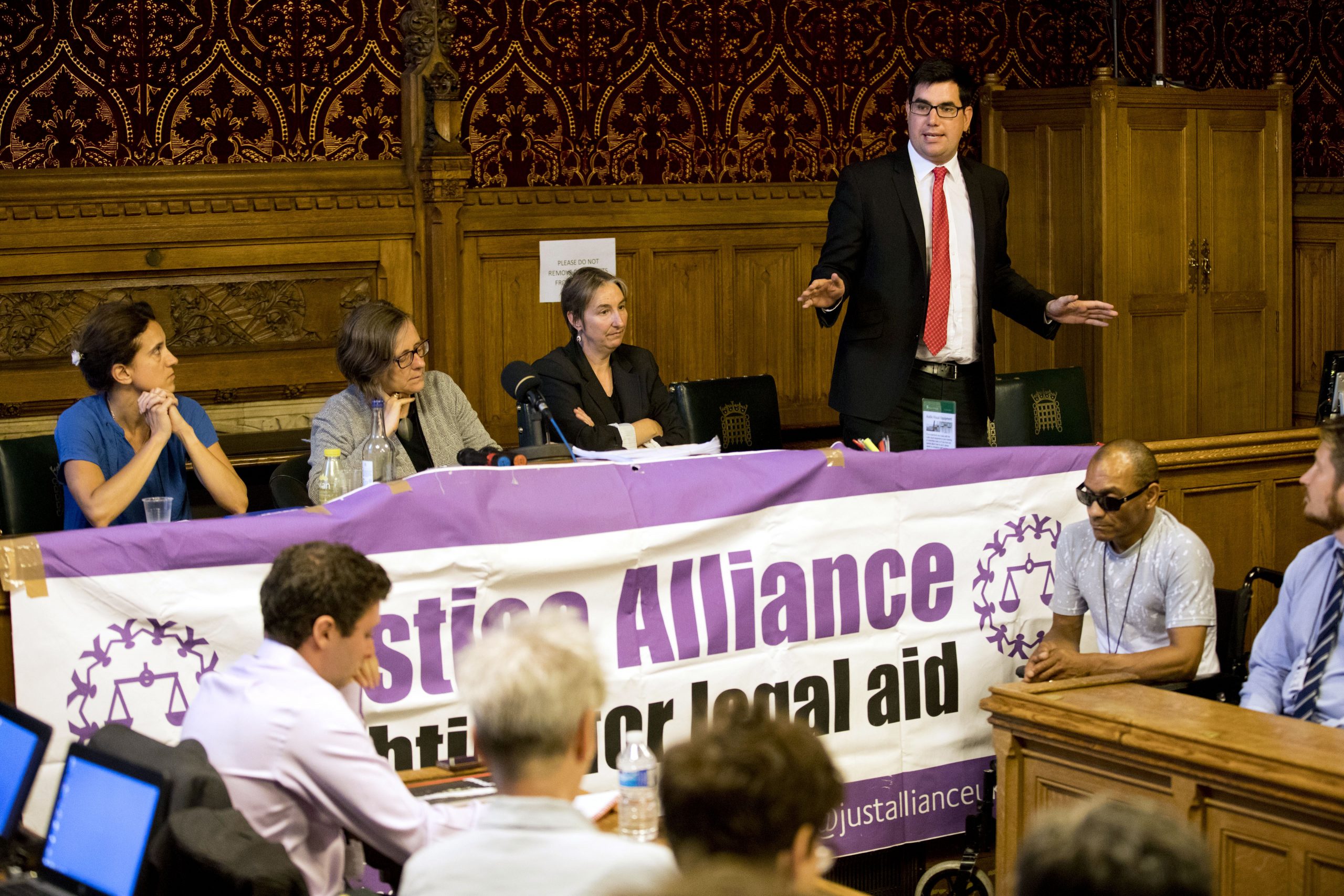A Labour government would reinstate legal aid for housing and welfare benefits advice and provide funding for families of the bereaved at inquests. At a meeting of the all party parliamentary group on legal aid last week, the shadow justice minister Richard Burgon promised support for the legal advice sector including ‘a new golden age’ for law centre.
He was talking at last week’s meeting of the all party parliamentary group on legal aid. The justice minister Lucy Frazer QC defended the recently published LASPO (Legal Aid, Sentencing and Punishment of Offenders Act 2012) post-implementation review. ‘We are committed to continue maintaining the spirit of cooperation and to continue these conversations as we take our first steps to achieve our vision,’ she said.
The minister said it was ‘simply not sustainable to put back £800m back into legal aid provisions’. ‘LASPO came into force some six years ago,’ she said. ‘Since then, society has changed and the justice system is no exception to that.’ Before committing additional funding, Frazer argued that it would be necessary to establish what worked through the further reviews proposed. She also added that £1bn was being invested into the courts and tribunals system with new technologies which would allow for smoother functioning of these systems.
Frazer also highlighted legal aid was going to be reintroduced for special guardianship orders in family law matters, as well as for discrimination, debt and special needs education cases. She pointed to the the broadening of the exceptional funding scheme criteria and a review of the means testing. The minister added that there would be ‘a review of all schemes used to remunerate criminal legal aid practitioners to ensure they are fit for the future’.
On the need for early intervention, Frazer said there would be legal support action plan and called on the legal sector to work more collaboratively with other sectors, such as health, to deliver legal support more holistically.
Richard Burgon said that the government’s commitment of £8 million new money ‘would do nothing to rectify the £900m’ taken from the system as a result of the 2013 legal aid cuts. It was ‘too little, too late’, he said. ‘Too many of the conclusions include further reviews or pilot evaluations. The crisis is here and now and getting deeper and deeper. The review was a chance to put in alternatives but instead is just kicking the can down the road.’
Bob Neill, the Tory chair of the House of Commons’ justice select committee, commended the LASPO review ‘giving credit where it is due’. ‘This is a starting point, but there is lots more to be done,’ he told the meeting. The barrister said that cuts were made at a time where there was real economic turmoil and since then many things have changed including the delivery of legal services.
Neill raised the issue of increased litigants in person post LASPO which resulted in cases taking twice or three times as long to get through the courts and an increase in the number of unregulated McKenzie friends. The LASPO review failed to address their growth properly and led to ‘shunting costs elsewhere in the system’, he added. Neill also said that LASPO particularly hit criminal trials where there was no longer equality of arms as increasingly litigants in person were prosecuted by the entire force of the state. ‘Access to legal aid needs to be treated like a basic social entitlement like education and healthcare,’ he said
Richard Atkins QC, chair of the Bar Council, said the LASPO review ‘ducked all major issues’. The barrister said that the unregulated growth of McKenzie Friends was alarming and had not been adequately recognised. ‘The many hundreds of pages of the report are of little substance [in relation] to the impact of LASPO on vulnerable individuals seeking justice,’ he commented.
‘At a time when we are apparently suggesting to other countries across the globe that we are a country where the rule of law is paramount; that they can continue to come here to litigate disputes; what does this review say about our justice system? What value does it suggest that we place on our citizens rights; their access to justice and legal representation at the most desperate moments of their lives? We cannot and must not continue to undervalue our justice system.’
Richard Atkins
Simon Davis, the vice-president of the Law Society, spoke of the ‘corrosive’ nature of LASPO on the justice system and its overall detrimental impact on society’. However, he acknowledged that the review was a ‘step in the right direction’. His main points were that the means testing threshold needs to be amended, as do the rates for solicitors taking on legal aid work. ‘If people cannot access their rights, those rights do not exist,’ he said; adding that access to justice was a ‘central element of our unwritten constitution’.







